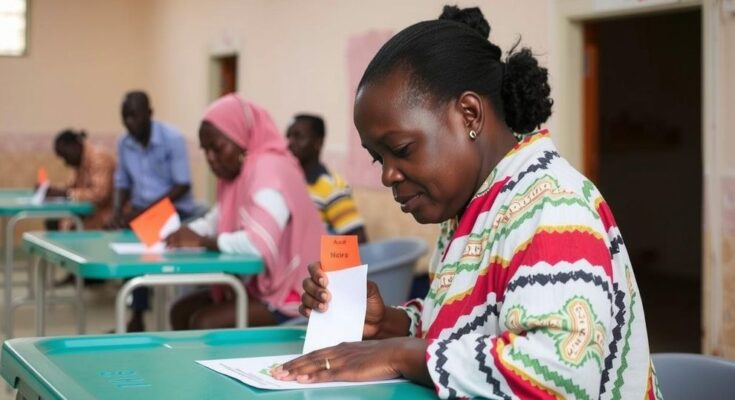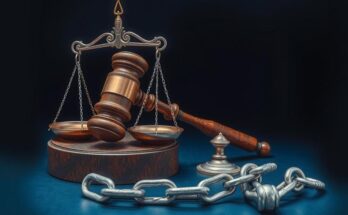Voting has started in Chad, with opposition parties urging a boycott, claiming the elections are a sham to solidify the ruling party’s power. Military personnel and nomadic tribes voted early, while general public participation is set for Sunday. Many citizens express indifference and skepticism about the elections’ fairness amid ongoing instability and rising living costs.
Voting commenced in Chad amidst a boycott campaign initiated by opposition parties who labeled the election a mere facade to strengthen the ruling party’s grip on power. President Mahamat Idriss Deby Itno has characterized these general elections as crucial for the country’s democratic transition. While some members of the military and nomadic tribes voted early for logistical purposes, the general public is expected to cast their votes on Sunday to elect a national parliament, regional assemblies, and local councils. Reports indicate a pervasive sense of indifference among the populace, with many expressing doubts about the possibility of change, believing that the ruling party will maintain its dominance regardless of the electoral outcome.
Despite the boycott calls, voter turnout among nomadic tribes and soldiers was substantial by midday on Saturday. Senior election officials reported that voting for military personnel was proceeding smoothly. However, the backdrop of ongoing instability due to Boko Haram attacks and tensions regarding foreign military relations highlights the complexities surrounding the electoral process in Chad. Deby, who took over after the death of his father, has emphasized these elections as a pivotal step in the transition to democracy, although concerns persist regarding the fairness and integrity of the electoral system, which many view as skewed in favor of the ruling Patriotic Salvation Movement party. Analysts assert that the current electoral management body lacks independence, raising significant worries about the legitimacy of the electoral process and the overall political landscape in Chad.
The elections in Chad represent an essential phase in an ongoing transition from military rule to a democratic government. Following the death of long-time leader Idriss Deby Itno in 2021, his son, Mahamat Idriss Deby Itno, took control and promised reforms. However, the opposition has been vocal in its accusations of electoral manipulation and lack of transparency within the ruling government, undermining public trust in the political process. Chad, facing challenges including economic hardship, corruption, and security threats from insurgent groups, highlights the stakes of these elections as a measure of the country’s stability and the ruling party’s future.
In conclusion, although voting has begun in Chad, the overwhelming sentiment among many citizens is one of skepticism regarding the electoral process. The opposition’s call for a boycott reflects widespread disillusionment with the ruling party and concerns over the integrity of the elections. Analysts remain wary of the implications these elections hold for Chad’s transition toward democracy, considering the historical context of military influence and public apprehension about meaningful change in governance.
Original Source: www.aljazeera.com




